Developing Individuals, Teams and Organisations Report - June 2020
VerifiedAdded on 2023/01/12
|14
|819
|82
Report
AI Summary
This report provides a comprehensive analysis of the development of individuals, teams, and organizations, focusing on strategies to achieve high performance and enhance employee engagement. It explores the contribution of high-performance working (HPW) towards competitive advantage, examines HR practices that promote employee engagement, and analyzes the relationship between HPW and human resource management. The report also delves into different approaches for identifying worker compatibility and performance, using Whirlpool as a case study. It covers comparative and attribute approaches to performance management. Finally, the report offers recommendations for management and concludes with a summary of key findings and references.
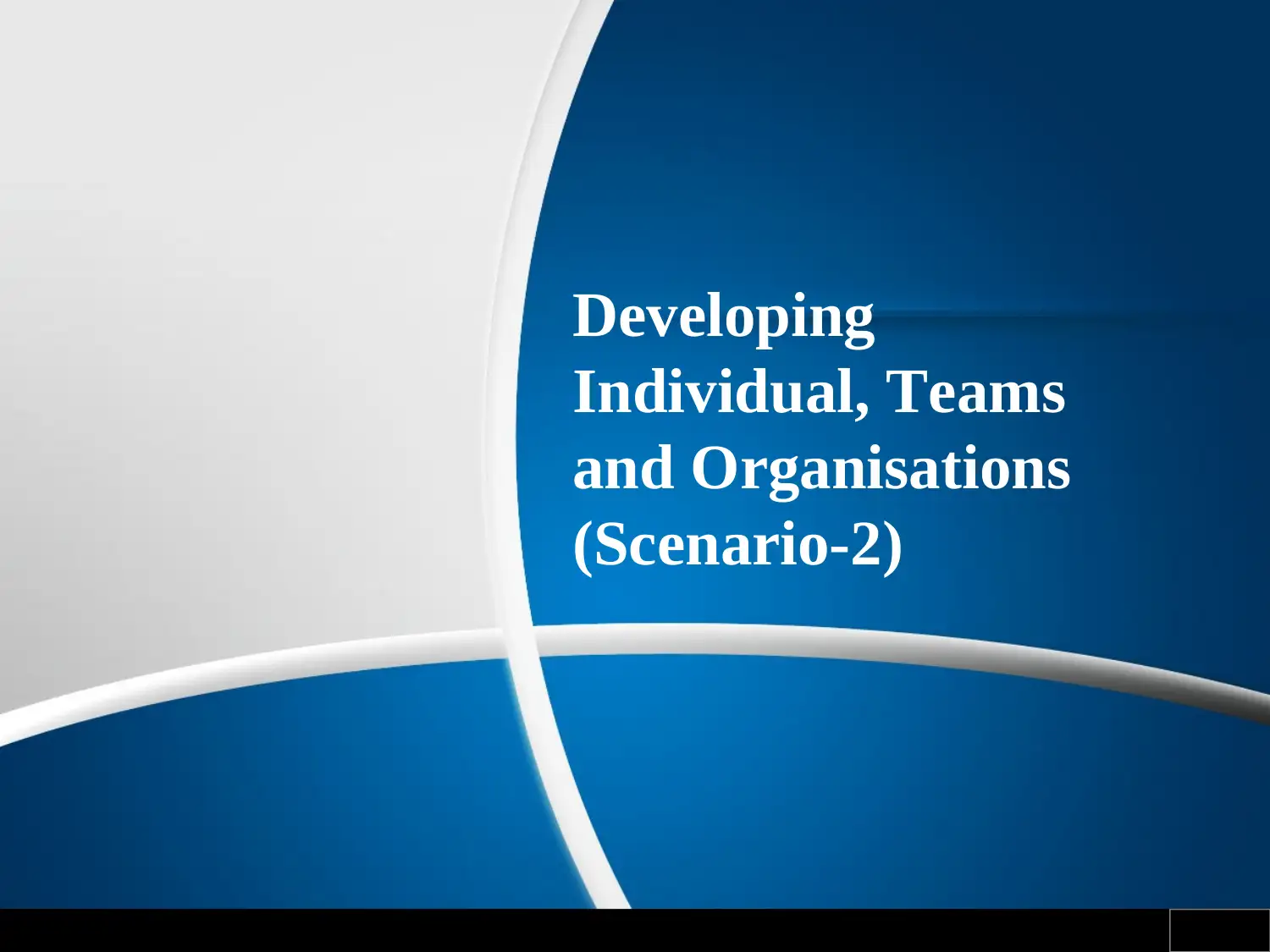
Developing
Individual, Teams
and Organisations
(Scenario-2)
Individual, Teams
and Organisations
(Scenario-2)
Paraphrase This Document
Need a fresh take? Get an instant paraphrase of this document with our AI Paraphraser
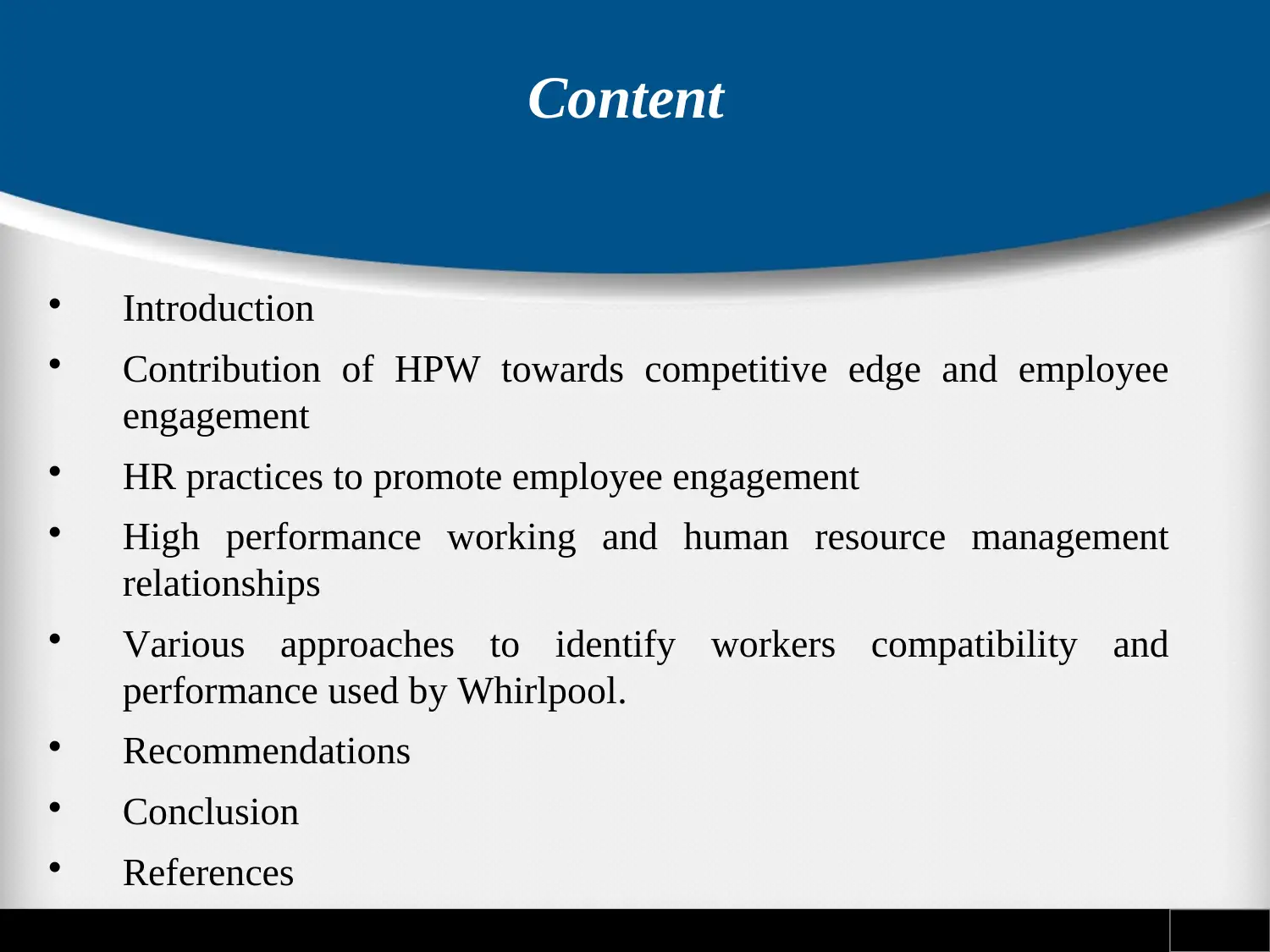
Content
Introduction
Contribution of HPW towards competitive edge and employee
engagement
HR practices to promote employee engagement
High performance working and human resource management
relationships
Various approaches to identify workers compatibility and
performance used by Whirlpool.
Recommendations
Conclusion
References
Introduction
Contribution of HPW towards competitive edge and employee
engagement
HR practices to promote employee engagement
High performance working and human resource management
relationships
Various approaches to identify workers compatibility and
performance used by Whirlpool.
Recommendations
Conclusion
References
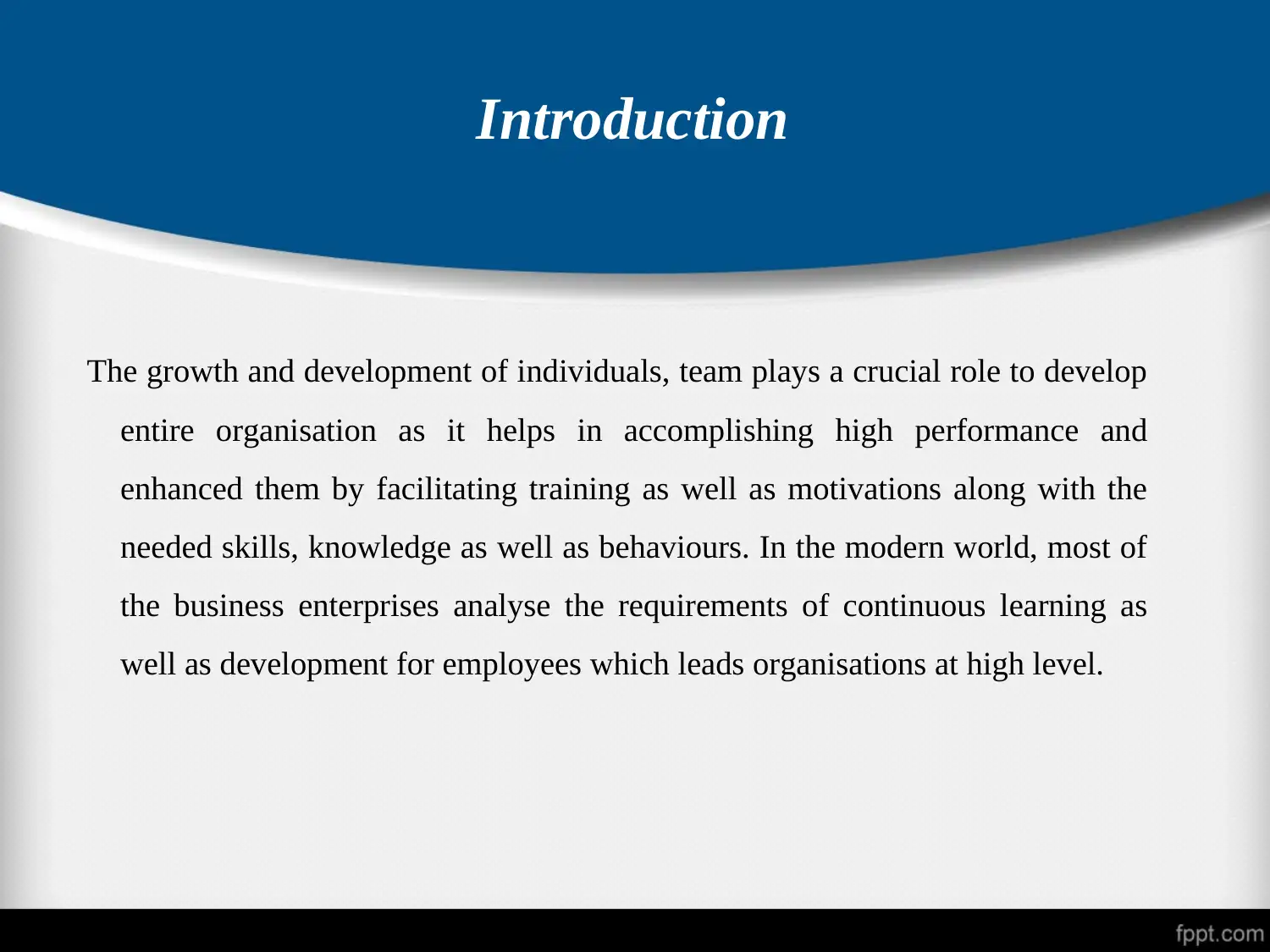
Introduction
The growth and development of individuals, team plays a crucial role to develop
entire organisation as it helps in accomplishing high performance and
enhanced them by facilitating training as well as motivations along with the
needed skills, knowledge as well as behaviours. In the modern world, most of
the business enterprises analyse the requirements of continuous learning as
well as development for employees which leads organisations at high level.
The growth and development of individuals, team plays a crucial role to develop
entire organisation as it helps in accomplishing high performance and
enhanced them by facilitating training as well as motivations along with the
needed skills, knowledge as well as behaviours. In the modern world, most of
the business enterprises analyse the requirements of continuous learning as
well as development for employees which leads organisations at high level.
⊘ This is a preview!⊘
Do you want full access?
Subscribe today to unlock all pages.

Trusted by 1+ million students worldwide
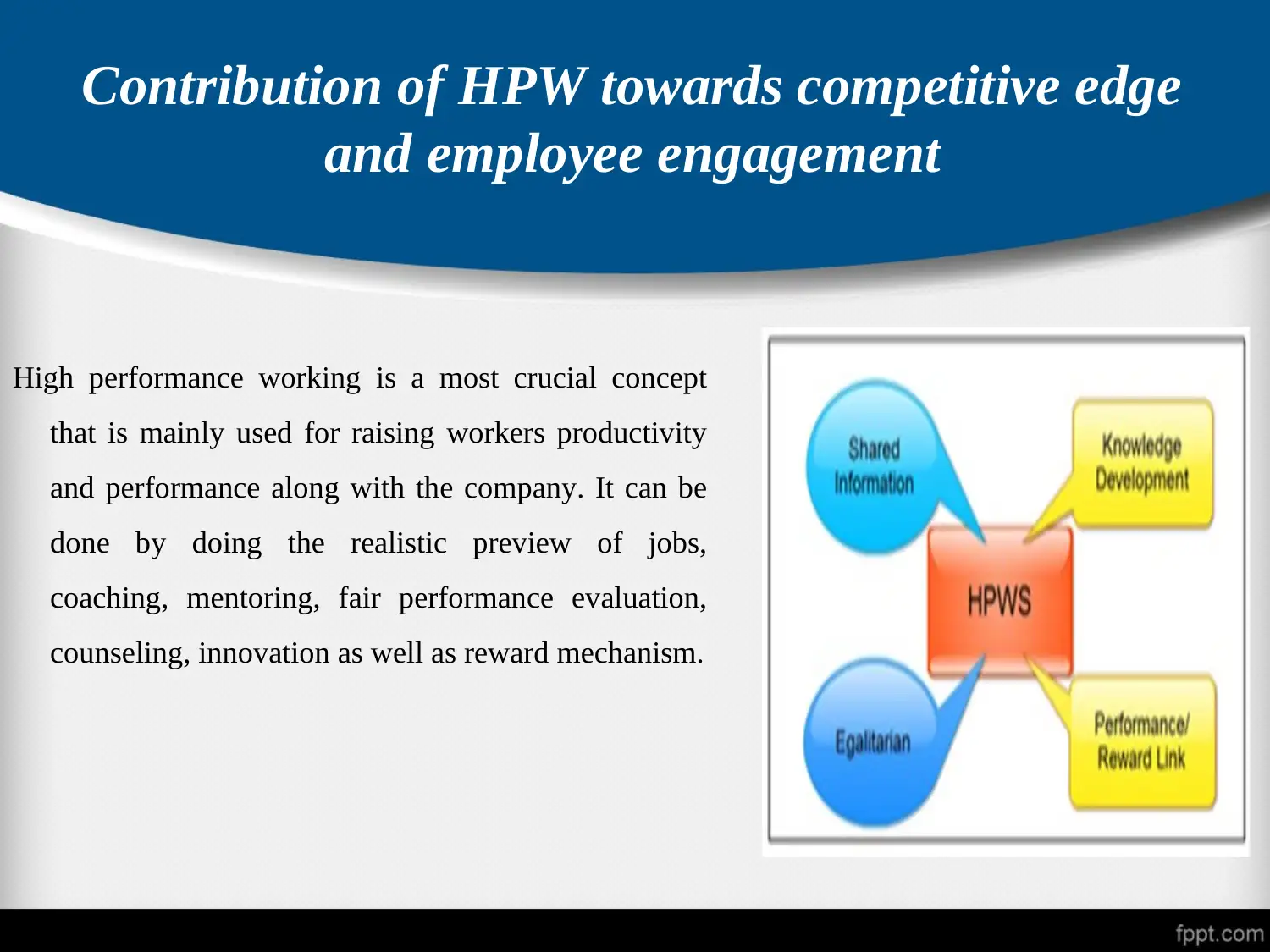
Contribution of HPW towards competitive edge
and employee engagement
High performance working is a most crucial concept
that is mainly used for raising workers productivity
and performance along with the company. It can be
done by doing the realistic preview of jobs,
coaching, mentoring, fair performance evaluation,
counseling, innovation as well as reward mechanism.
and employee engagement
High performance working is a most crucial concept
that is mainly used for raising workers productivity
and performance along with the company. It can be
done by doing the realistic preview of jobs,
coaching, mentoring, fair performance evaluation,
counseling, innovation as well as reward mechanism.
Paraphrase This Document
Need a fresh take? Get an instant paraphrase of this document with our AI Paraphraser
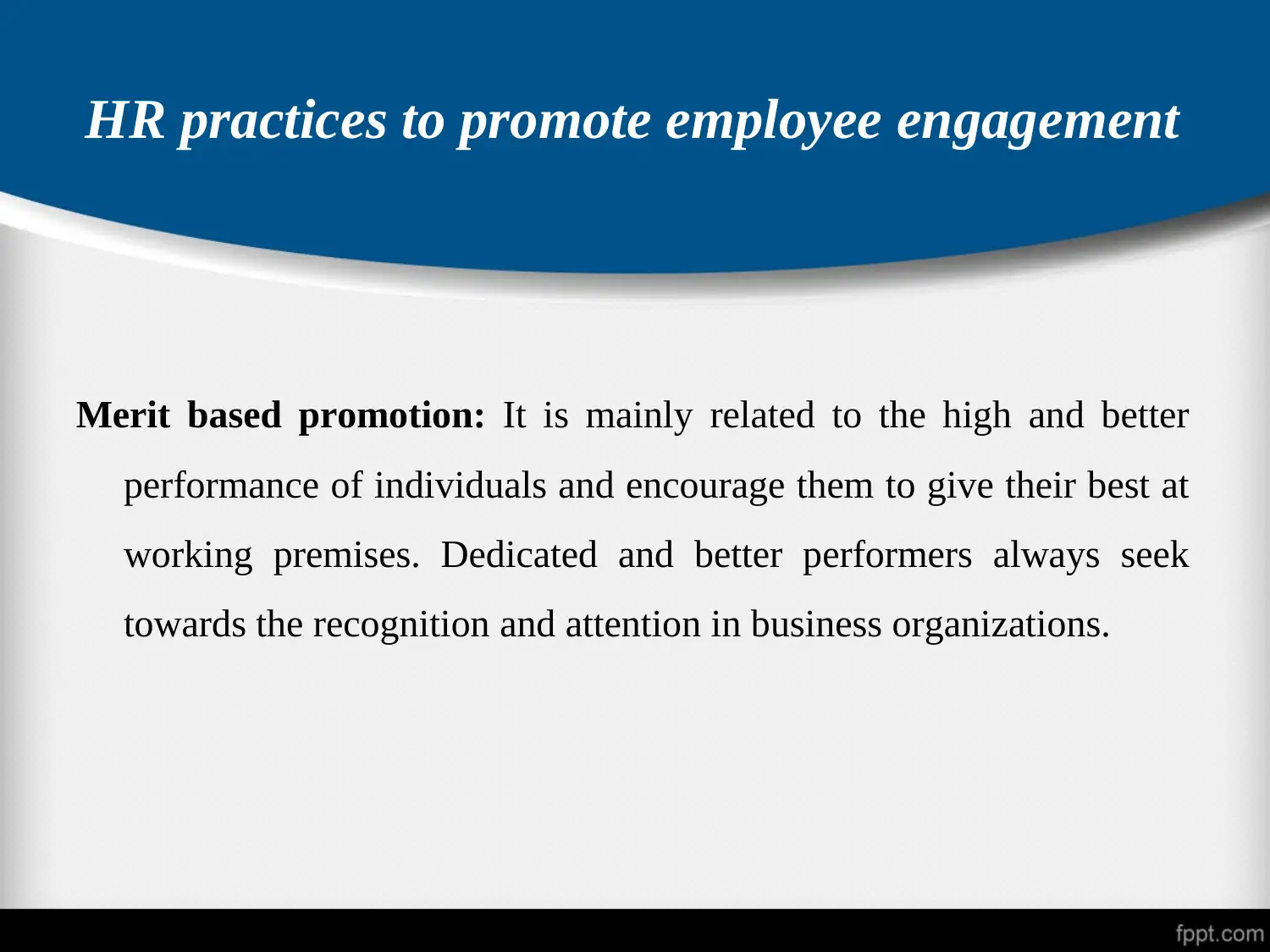
HR practices to promote employee engagement
Merit based promotion: It is mainly related to the high and better
performance of individuals and encourage them to give their best at
working premises. Dedicated and better performers always seek
towards the recognition and attention in business organizations.
Merit based promotion: It is mainly related to the high and better
performance of individuals and encourage them to give their best at
working premises. Dedicated and better performers always seek
towards the recognition and attention in business organizations.
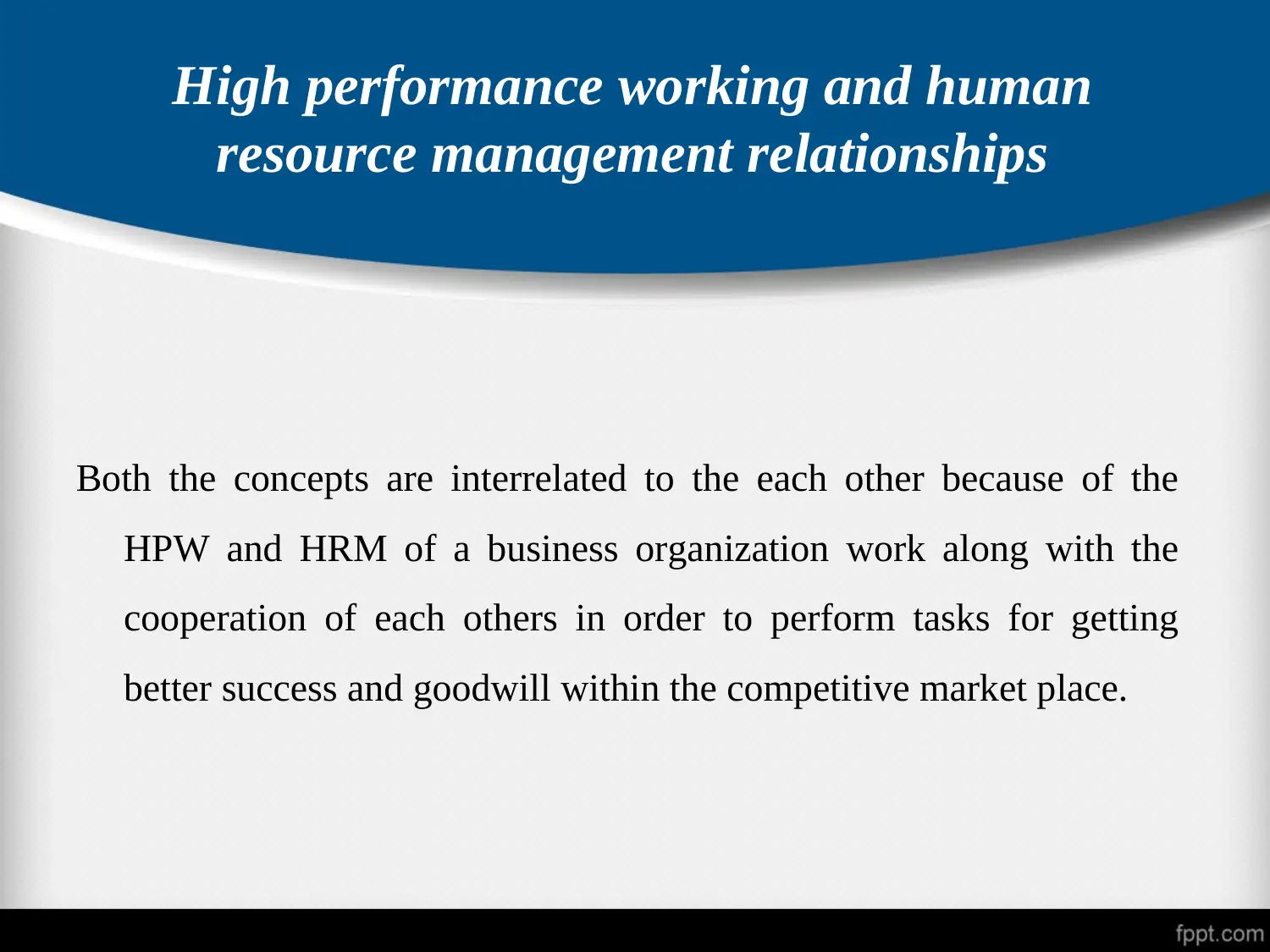
High performance working and human
resource management relationships
Both the concepts are interrelated to the each other because of the
HPW and HRM of a business organization work along with the
cooperation of each others in order to perform tasks for getting
better success and goodwill within the competitive market place.
resource management relationships
Both the concepts are interrelated to the each other because of the
HPW and HRM of a business organization work along with the
cooperation of each others in order to perform tasks for getting
better success and goodwill within the competitive market place.
⊘ This is a preview!⊘
Do you want full access?
Subscribe today to unlock all pages.

Trusted by 1+ million students worldwide
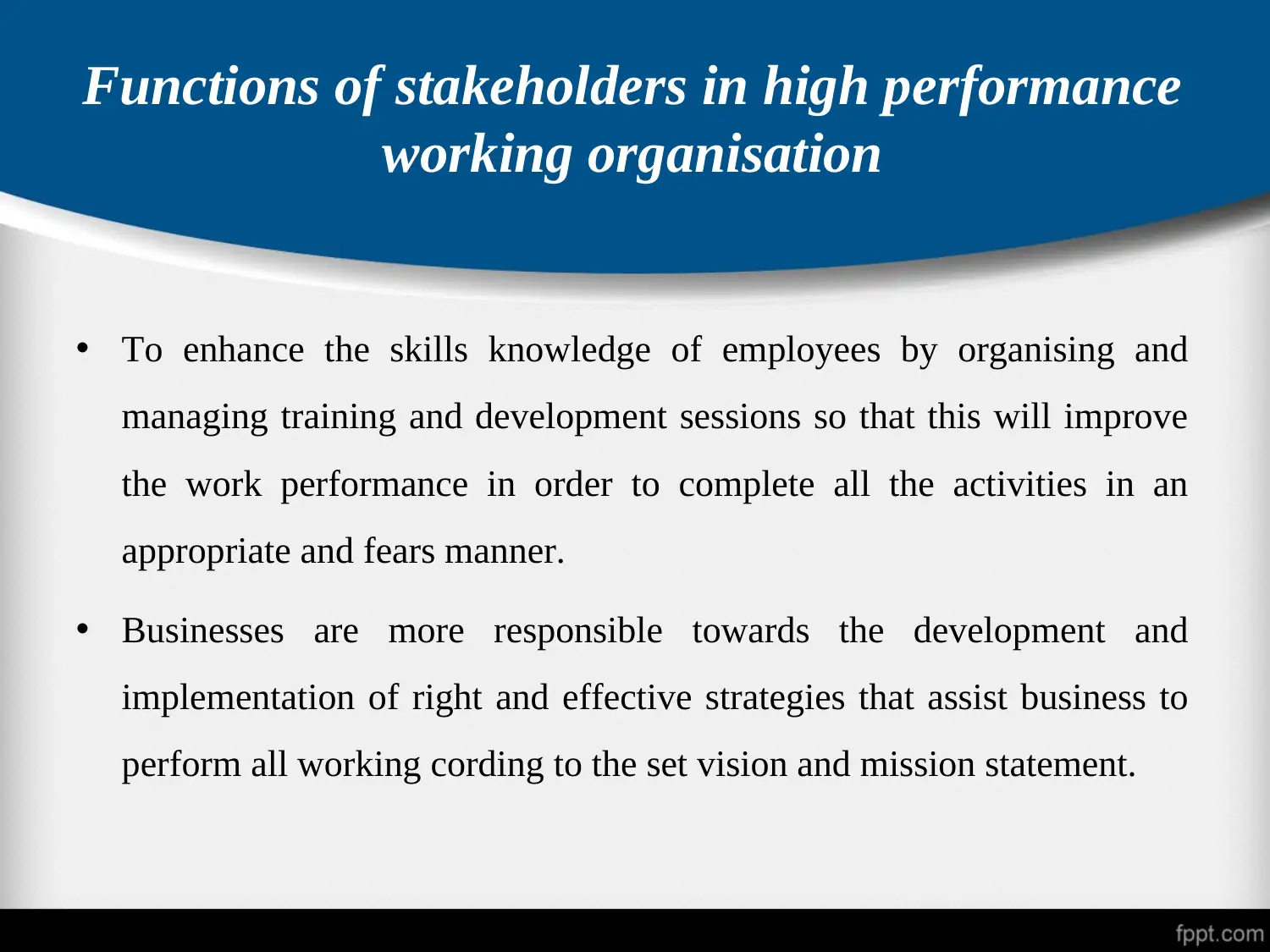
Functions of stakeholders in high performance
working organisation
• To enhance the skills knowledge of employees by organising and
managing training and development sessions so that this will improve
the work performance in order to complete all the activities in an
appropriate and fears manner.
• Businesses are more responsible towards the development and
implementation of right and effective strategies that assist business to
perform all working cording to the set vision and mission statement.
working organisation
• To enhance the skills knowledge of employees by organising and
managing training and development sessions so that this will improve
the work performance in order to complete all the activities in an
appropriate and fears manner.
• Businesses are more responsible towards the development and
implementation of right and effective strategies that assist business to
perform all working cording to the set vision and mission statement.
Paraphrase This Document
Need a fresh take? Get an instant paraphrase of this document with our AI Paraphraser
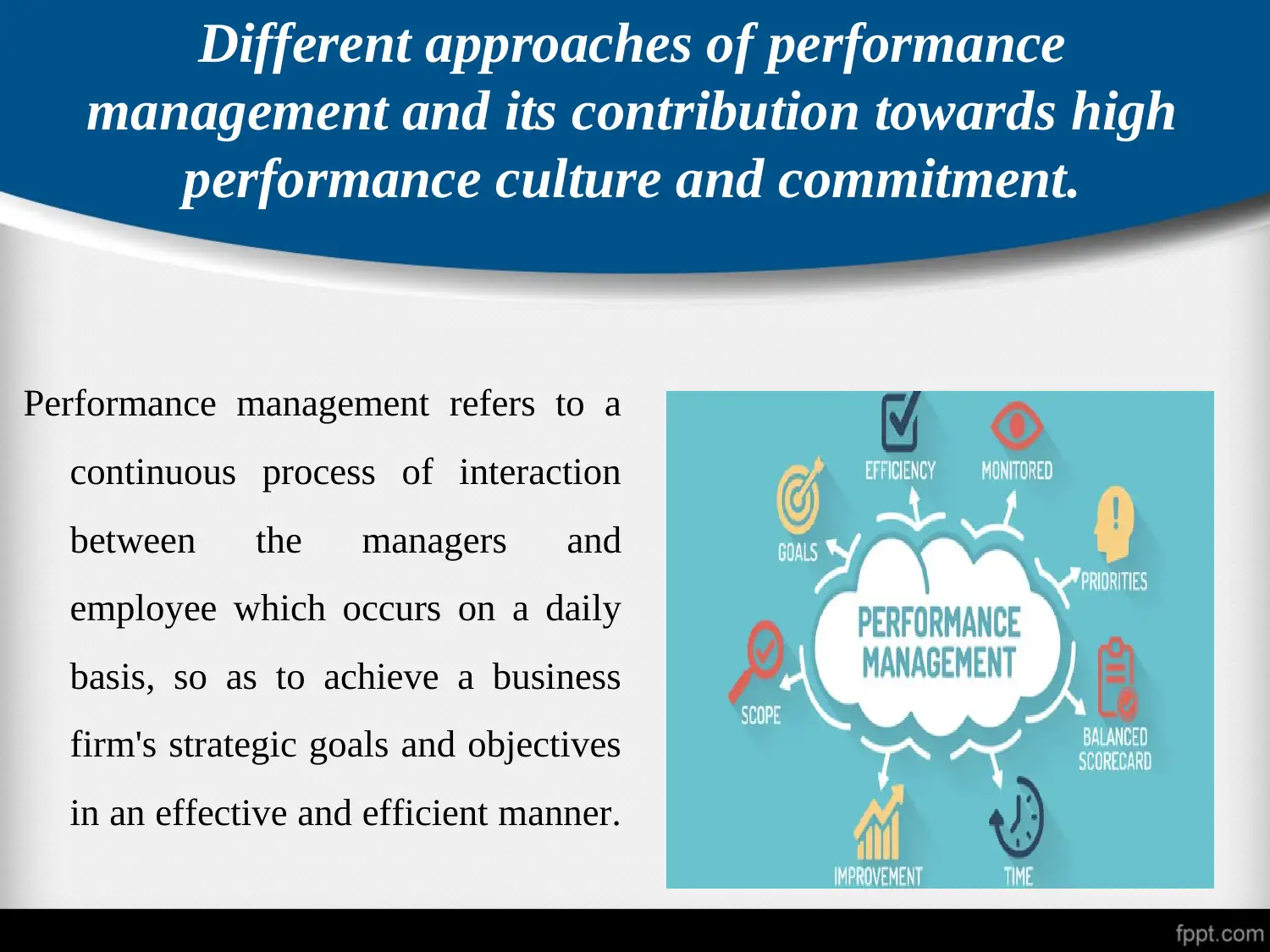
Different approaches of performance
management and its contribution towards high
performance culture and commitment.
Performance management refers to a
continuous process of interaction
between the managers and
employee which occurs on a daily
basis, so as to achieve a business
firm's strategic goals and objectives
in an effective and efficient manner.
management and its contribution towards high
performance culture and commitment.
Performance management refers to a
continuous process of interaction
between the managers and
employee which occurs on a daily
basis, so as to achieve a business
firm's strategic goals and objectives
in an effective and efficient manner.
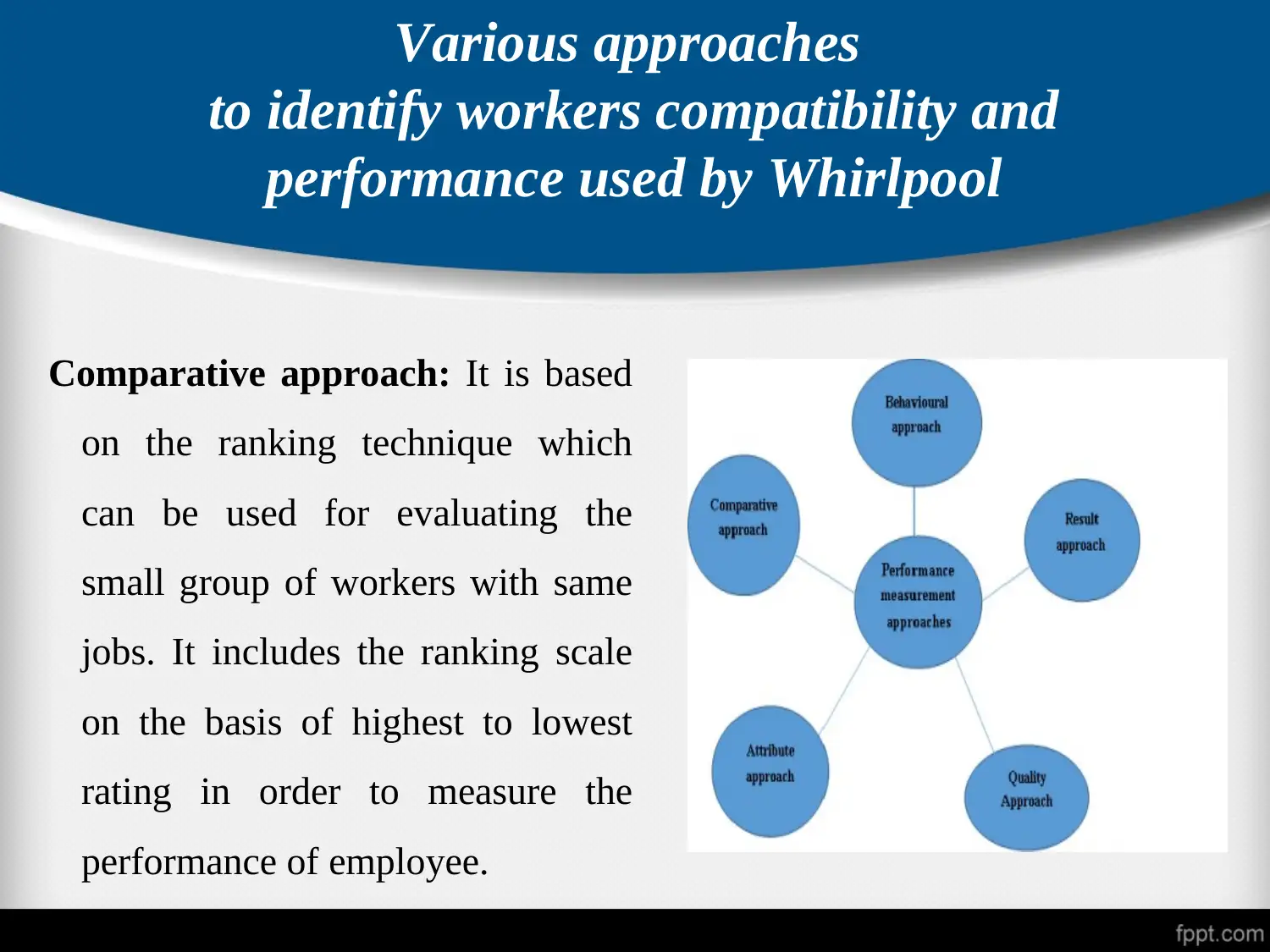
Various approaches
to identify workers compatibility and
performance used by Whirlpool
Comparative approach: It is based
on the ranking technique which
can be used for evaluating the
small group of workers with same
jobs. It includes the ranking scale
on the basis of highest to lowest
rating in order to measure the
performance of employee.
to identify workers compatibility and
performance used by Whirlpool
Comparative approach: It is based
on the ranking technique which
can be used for evaluating the
small group of workers with same
jobs. It includes the ranking scale
on the basis of highest to lowest
rating in order to measure the
performance of employee.
⊘ This is a preview!⊘
Do you want full access?
Subscribe today to unlock all pages.

Trusted by 1+ million students worldwide
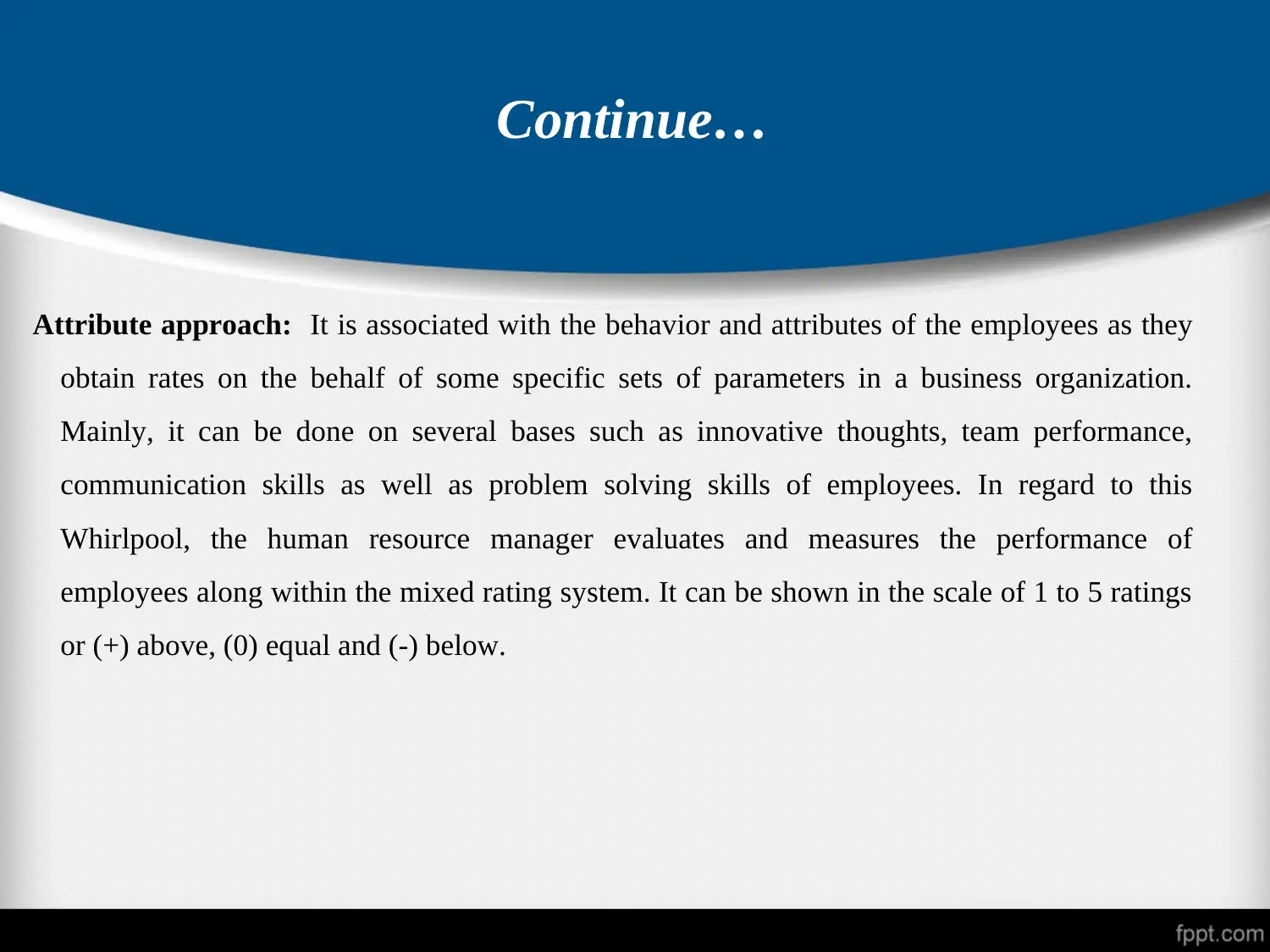
Continue…
Attribute approach: It is associated with the behavior and attributes of the employees as they
obtain rates on the behalf of some specific sets of parameters in a business organization.
Mainly, it can be done on several bases such as innovative thoughts, team performance,
communication skills as well as problem solving skills of employees. In regard to this
Whirlpool, the human resource manager evaluates and measures the performance of
employees along within the mixed rating system. It can be shown in the scale of 1 to 5 ratings
or (+) above, (0) equal and (-) below.
Attribute approach: It is associated with the behavior and attributes of the employees as they
obtain rates on the behalf of some specific sets of parameters in a business organization.
Mainly, it can be done on several bases such as innovative thoughts, team performance,
communication skills as well as problem solving skills of employees. In regard to this
Whirlpool, the human resource manager evaluates and measures the performance of
employees along within the mixed rating system. It can be shown in the scale of 1 to 5 ratings
or (+) above, (0) equal and (-) below.
Paraphrase This Document
Need a fresh take? Get an instant paraphrase of this document with our AI Paraphraser
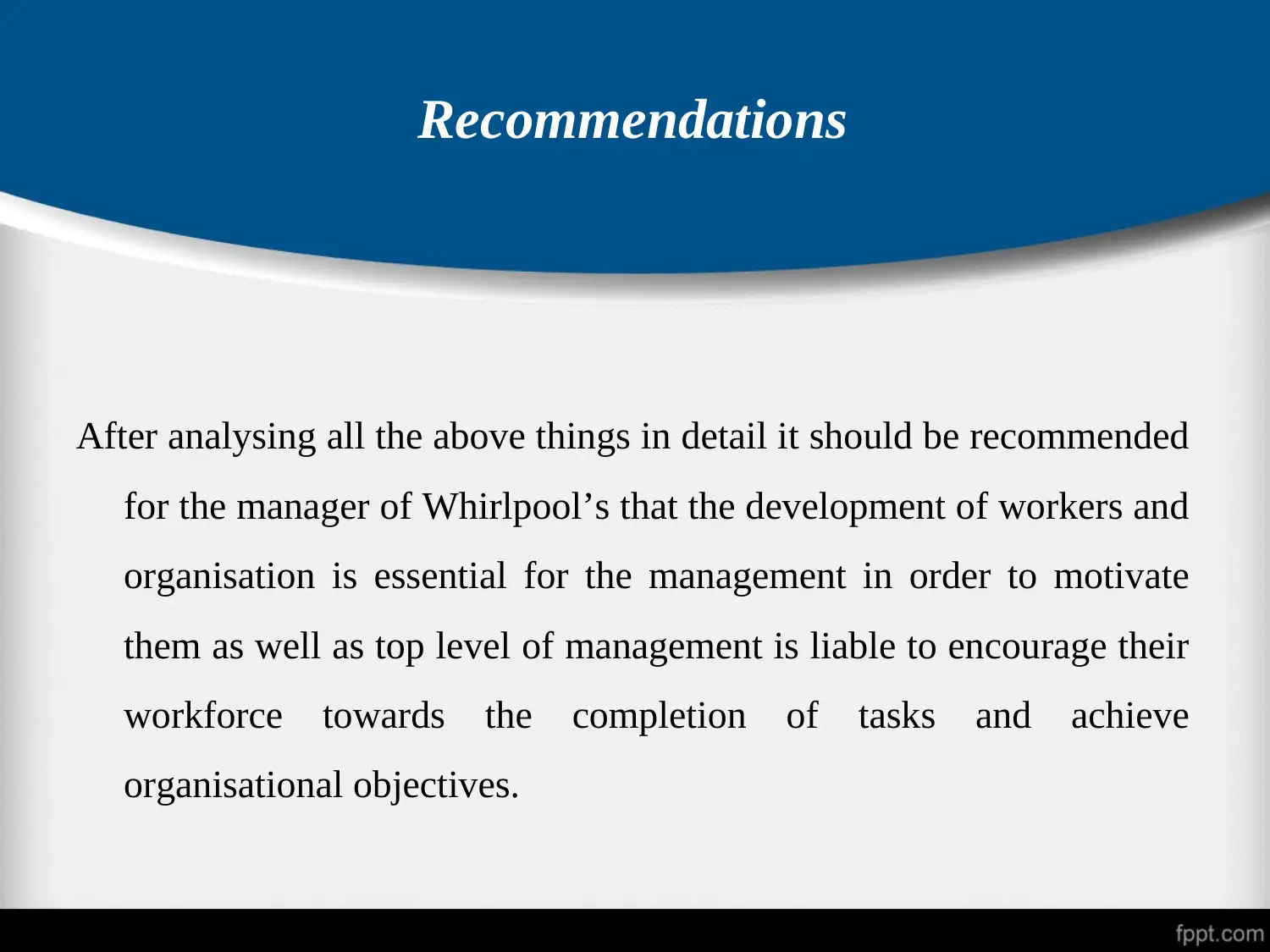
Recommendations
After analysing all the above things in detail it should be recommended
for the manager of Whirlpool’s that the development of workers and
organisation is essential for the management in order to motivate
them as well as top level of management is liable to encourage their
workforce towards the completion of tasks and achieve
organisational objectives.
After analysing all the above things in detail it should be recommended
for the manager of Whirlpool’s that the development of workers and
organisation is essential for the management in order to motivate
them as well as top level of management is liable to encourage their
workforce towards the completion of tasks and achieve
organisational objectives.
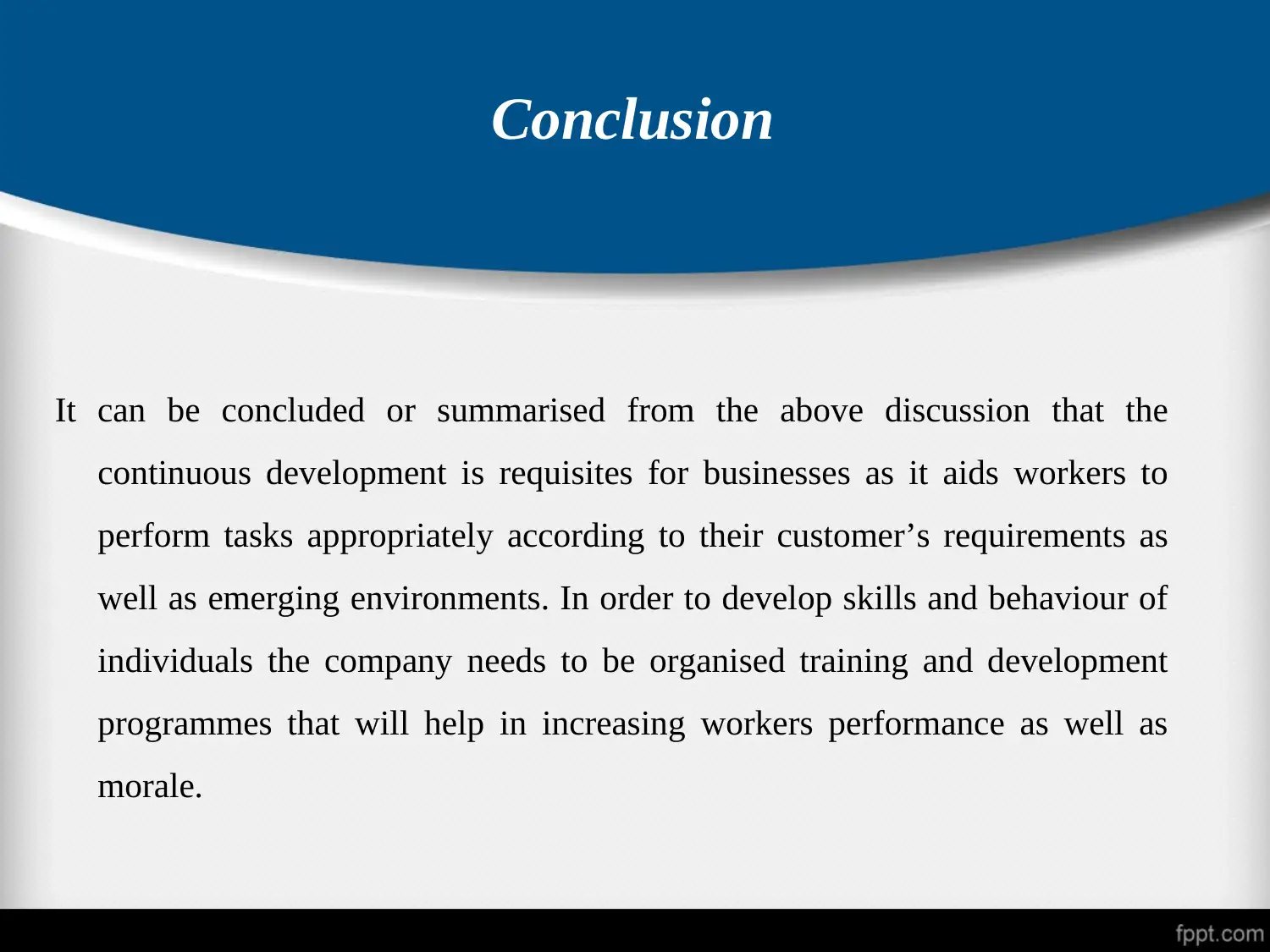
Conclusion
It can be concluded or summarised from the above discussion that the
continuous development is requisites for businesses as it aids workers to
perform tasks appropriately according to their customer’s requirements as
well as emerging environments. In order to develop skills and behaviour of
individuals the company needs to be organised training and development
programmes that will help in increasing workers performance as well as
morale.
It can be concluded or summarised from the above discussion that the
continuous development is requisites for businesses as it aids workers to
perform tasks appropriately according to their customer’s requirements as
well as emerging environments. In order to develop skills and behaviour of
individuals the company needs to be organised training and development
programmes that will help in increasing workers performance as well as
morale.
⊘ This is a preview!⊘
Do you want full access?
Subscribe today to unlock all pages.

Trusted by 1+ million students worldwide
1 out of 14
Related Documents
Your All-in-One AI-Powered Toolkit for Academic Success.
+13062052269
info@desklib.com
Available 24*7 on WhatsApp / Email
![[object Object]](/_next/static/media/star-bottom.7253800d.svg)
Unlock your academic potential
Copyright © 2020–2026 A2Z Services. All Rights Reserved. Developed and managed by ZUCOL.





